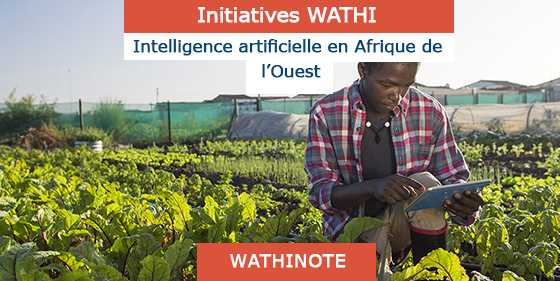

Author: François Candelon, Hind El Bedraoui, Hamid Maher
Affiliated organisation: OECD
Type of publication: Article
Date of publication: February 2021
Lien vers de le document original
Africa has a unique opportunity to develop its competitiveness through artificial intelligence. From agriculture and remote health to translating the 2,000-odd languages spoken across the continent, AI can help tackle the economic problems that Africa faces. Innovative forms of trans-continental collaboration are gaining ground, buoyed by the recent “homecoming” of several globally trained African experts in AI. Yet, the central challenge that Africa faces in deploying AI is often overlooked: Africa’s biggest companies are not zealously championing the cause of AI or deploying AI applications widely, causing them to trail behind global rivals. With limited bargaining power vis-à-vis foreign digital giants, and having failed so far to develop local talent, African companies run the risk of being less competitive than their multinational rivals in their home markets.
Today’s company-specific AI gap will be tomorrow’s national competitiveness chasm. Unless African companies actively drive the development of AI, African nations will never be able to leapfrog global rivals. Other nations have benefited from developing country-specific initiatives. Canada, Israel, and Singapore, for instance, have become globally competitive in AI by creating linkages between government, business, and academia. So can Africa.
Such a strategy would have two prongs:
- One, by developing key AI applications and deploying them at scale, African companies could kick start the use of AI. Doing so would improve their continental competitiveness, and position them as major players in the African market.
- Two, and more importantly, African companies can help create an AI ecosystem that will lower their development costs, help create AI applications tailored to local needs, and reduce their dependence on foreign companies.
Yet, the central challenge that Africa faces in deploying AI is often overlooked: Africa’s biggest companies are not zealously championing the cause of AI or deploying AI applications widely, causing them to trail behind global rivals
For this to happen, Africa’s companies can act on three fronts:
- Create an environment in which AI can take root:
- Rigid regulatory systems can frustrate the growth of any ecosystem, especially if it needs to scale across national borders. By working with national governments, Africa’s business leaders can drive the creation of AI policy.
- African companies can help formulate a trans-continental blueprint to guide AI strategy by involving academia, African institutions, and public sector companies.
- To gain trust in AI systems, Africans will need better ways to secure their data. African companies can help tackle the challenges of data privacy by laying down the norms that will govern how they collect, share, sell, store, and apply data, and by creating the requisite infrastructure, such as payment platforms.
- Ensure access to data, infrastructure, and licences:
- Without reliable infrastructure, affordable data plans, and access to technology, Africa’s digital divide will only be exacerbated by AI.
- African companies can meet their objectives faster if they work with each other as well as with transnational giants.
- Grow AI talent
African companies can help create an AI ecosystem that will lower their development costs, help create AI applications tailored to local needs, and reduce their dependence on foreign companies
-
- There is abundant raw talent on the continent: Africa is home to the fastest-growing population on the planet and the youngest, with 60% of its population under 25 years of age.
- Africa’s national champions can find ways to train talent in AI, striking partnerships with global educational institutions for this purpose.
- African companies can ensure that other stakeholders – international organisations, financial institutions, and national governments – participate in building the African AI ecosystem by aligning ecosystem incentives.
- As the AI infrastructure expands and the use of applications rises, African companies will expand and grow rapidly. They will become a breeding ground for talent, which will force multinational companies to collaborate with them.
The question then is not if AI can become a driver for Africa’s development, but how quickly it can be rolled out by Africa’s national champions.
Les Wathinotes sont soit des résumés de publications sélectionnées par WATHI, conformes aux résumés originaux, soit des versions modifiées des résumés originaux, soit des extraits choisis par WATHI compte tenu de leur pertinence par rapport au thème du Débat. Lorsque les publications et leurs résumés ne sont disponibles qu’en français ou en anglais, WATHI se charge de la traduction des extraits choisis dans l’autre langue. Toutes les Wathinotes renvoient aux publications originales et intégrales qui ne sont pas hébergées par le site de WATHI, et sont destinées à promouvoir la lecture de ces documents, fruit du travail de recherche d’universitaires et d’experts.
The Wathinotes are either original abstracts of publications selected by WATHI, modified original summaries or publication quotes selected for their relevance for the theme of the Debate. When publications and abstracts are only available either in French or in English, the translation is done by WATHI. All the Wathinotes link to the original and integral publications that are not hosted on the WATHI website. WATHI participates to the promotion of these documents that have been written by university professors and experts.
